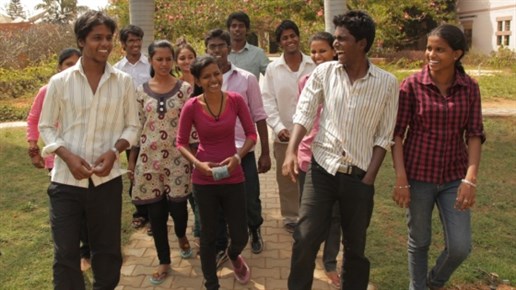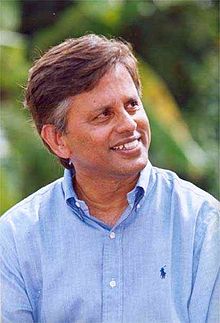Madeleine Green’s The Backward Class imparts an inspirational message: hope springs eternal. An empathetic documentary about a small group of teens from India’s “untouchable” caste who strive for upward mobility through education, it opens on Friday, Feb. 6 at the Bloor Hot Doc Cinema.
Green’s subjects are 12th grade students at the Shanti Bhavan School in southern India who are deep into the process of preparing for nation-wide exams that will likely determine their respective futures. If they’re test results are sufficiently high, they’ll have a good chance of gaining entry to a respectable college or university.
Green focuses on three students, Vijay, Anith and Mala, all of whom are 17 and hail from impoverished backgrounds. They’ve been at the boarding school for 13 years and regard it like a second home. The school`s principal, Lalita Law, is like a surrogate mother, and is selflessly devoted to the students and the school. “It was a dream I identified with,” she says.

Shanti Bhavan, set on immaculate grounds, was founded by Abraham George, an Indian entrepreneur who divides his time between India and New York City.
His objectives are three-fold: to break the cycle of social and economic disadvantage” weighing heavily on young Indians like Vijay, Anith and Mala, to create a new class of achievers from India`s lowest caste, and to help them attain major leadership roles in the country.
It’s quite a tall order, but George, who comes from a similar deprived background, is a determined man. Unfortunately, Green tells us precious little about him.

Green`s film, which follows the students’ progress, climaxes with a scene during which they learn how they fared on their exams. It’s a mostly joyous moment.
Without exception, the students experienced a childhood of hardship, sorrow, rejection and injustice, as they relate at the outset. Their parents are unskilled, low-income workers who toil as manual laborers and could not even afford to support them. Still other students come from broken homes.
India’s caste system was formally abolished in 1950, but it still affects the status of innumerable Indians, as Green suggests. Which is why the Shanti Bhavan School is so important an institution. But as The Backward Class unfolds, we discover that it’s financially strapped and is dependent on donations for its survival. It would appear that George lost much of his fortune in the 2008 recession.
In the face of this setback, he has labored on, keeping faith with his vision of incrementally changing India through the medium of education. Much to Green’s credit, The Backward Class captures this indomitable spirit.